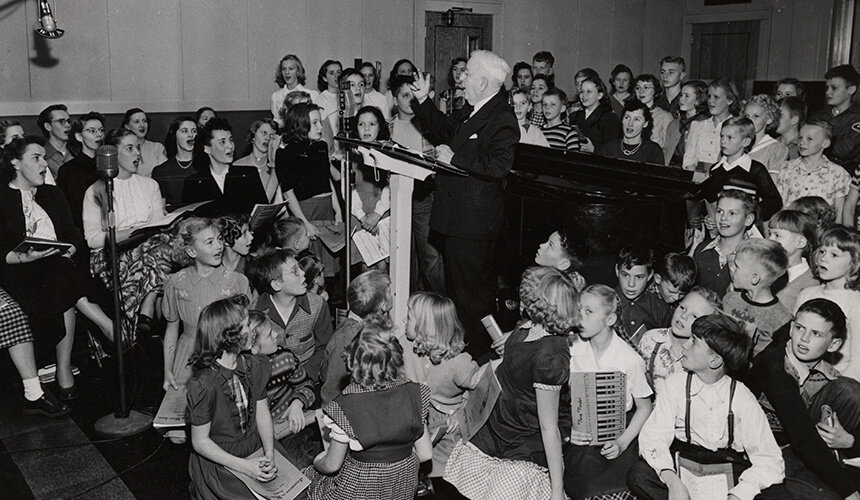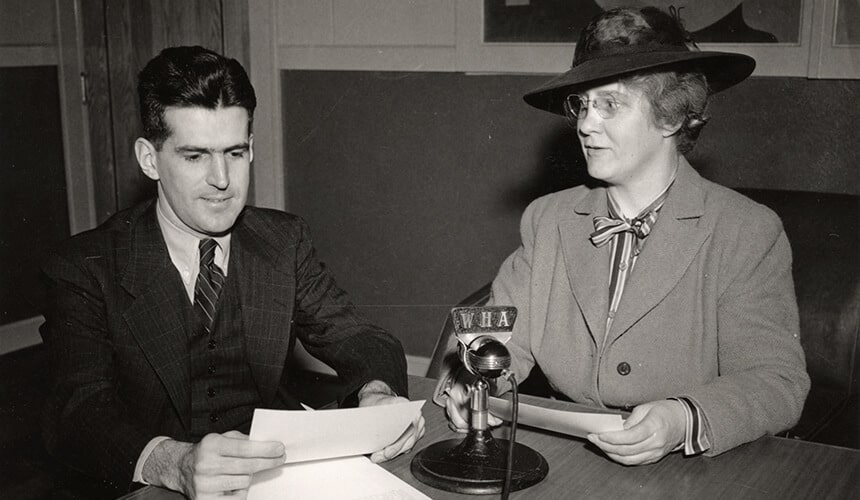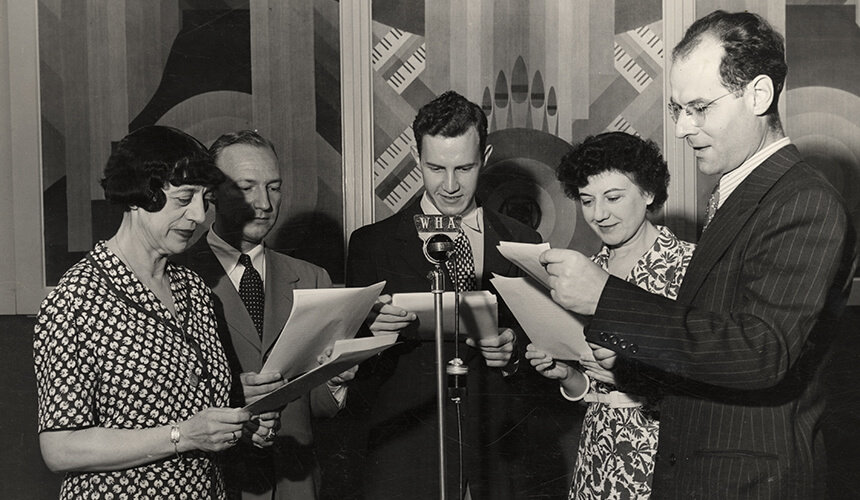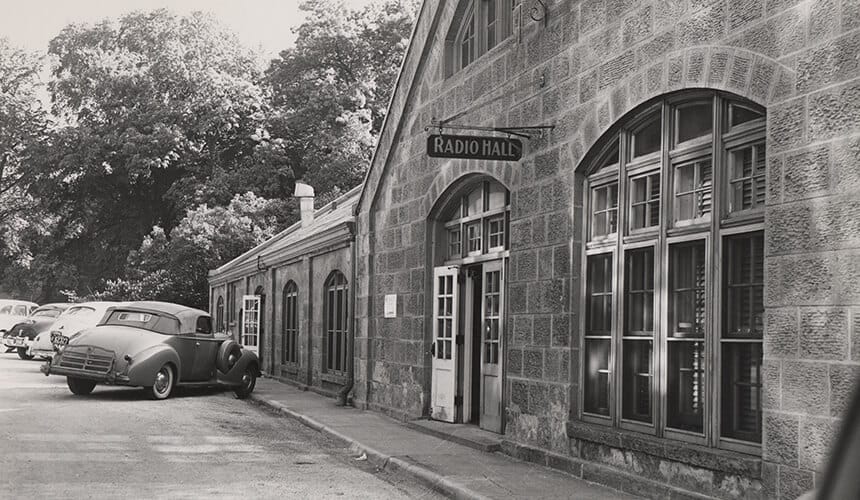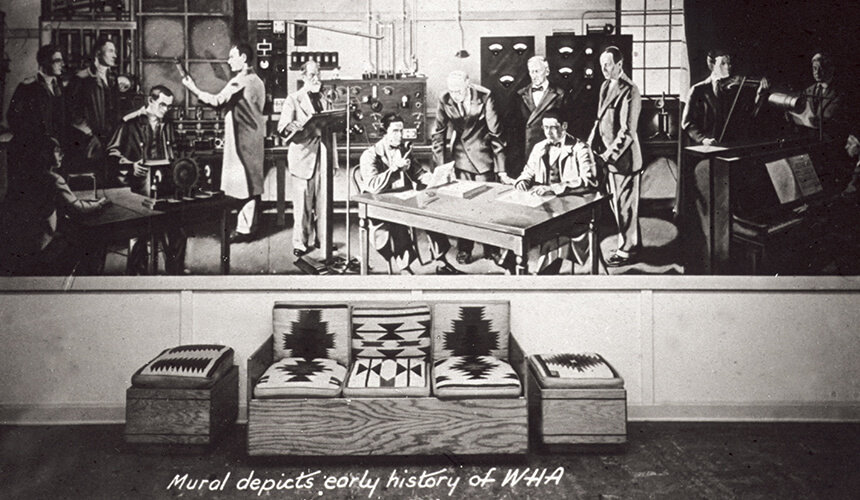WHA
Trailblazing Radio Station
The world comes to us as we listen to the latest news or music in our homes, while driving, or on our mobile devices. Radio, that marvelous medium, came into our lives in part through the efforts of tireless pioneers at the University of Wisconsin.
Electrical engineering professor Edward Bennett began experimenting with so-called wireless telegraphy and secured a broadcasting license (under the call sign 9XM) in 1914; physics professor Earle Terry and his students began building additional equipment in 1915. Working in the basement of Science Hall, they faced serious obstacles to progress — not the least of which was World War I.
But Terry saw the new technology’s potential to fulfill the Wisconsin Idea by broadcasting educational content. “Here, probably more than at other places, was this notion of, ‘What can we use this technology for to benefit people?’ — not just students, but all the citizens of the state,” said Randall Davidson BBA 1981, MBA 1989, author of 9XM Talking: WHA Radio and the Wisconsin Idea during an interview with the Capital Times in 2007. Spoken-word weather forecasts were first aired by 1921, and in 1922, a broadcast license was granted to the university with the randomly assigned call letters of WHA.
In 1934, the radio station made a much-needed move. An earlier relocation to Sterling Hall had proven to be far from ideal. Physics students in a room just a few feet from WHA were learning glassblowing, and the station’s studio often felt like a furnace. A move to Radio Hall, a renovated former heating plant, offered relief. By this time, WHA was well underway with popular programming. Listeners were enjoying programs ranging from “Chapter a Day” (initiated to fill air time when a guest didn’t show up) to “College of the Air” (which, rather remarkably, taught touch typing over the airwaves).
A debate lives on about whether WHA truly deserves the oft-repeated title of “oldest station in the nation.” Scholars of radio have studied documentation, trying to find definitive evidence that the honor belongs to Madison. But, as Davidson noted, “WHA has so much to be proud of anyway, that this is a minor thing.”
But here’s a major thing: WHA is still going strong decades later, serving as the flagship of Wisconsin Public Radio’s network of stations.
 29° F
29° F